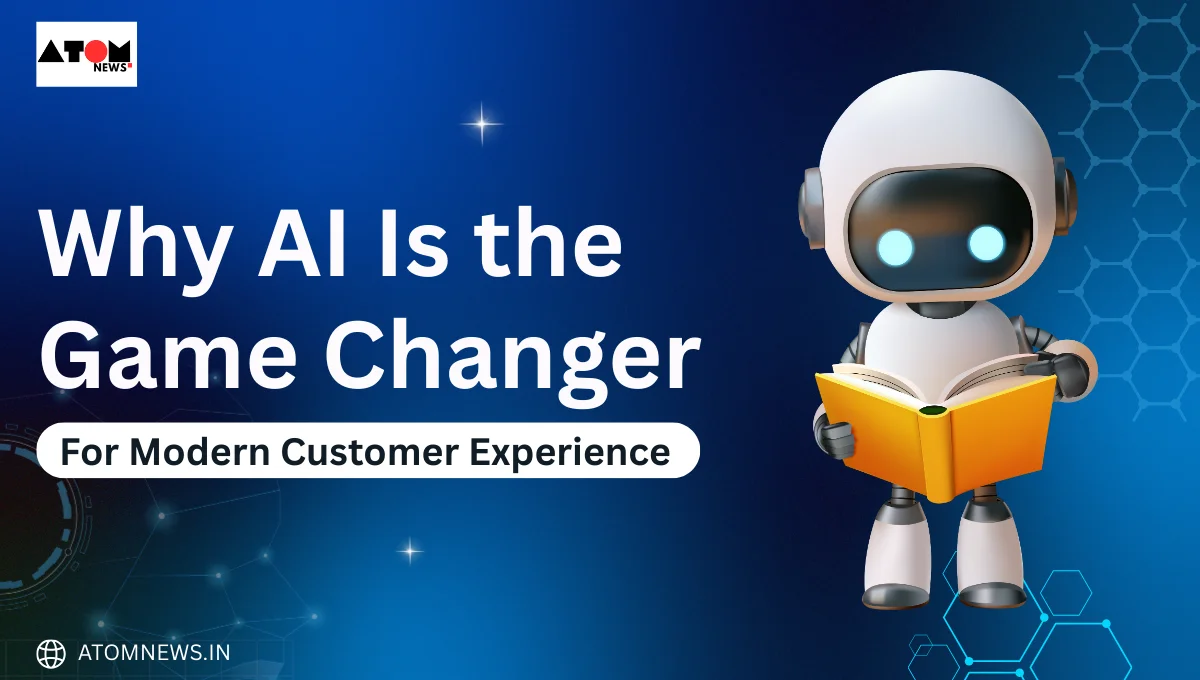Customer experience in India has evolved drastically over the last few years. Digital-first customer journeys, rising expectations, and instant feedback loops have changed the way brands think about communication, service delivery and retention. Today, the competition is not only about product quality or pricing—it is about experience quality.
AI is emerging as the most transformative force in this shift. From automated service to predictive personalisation, AI is reshaping how brands understand, support and retain customers. The change is no longer experimental. AI has moved from innovation labs to real operational frameworks across industries—including BFSI, ecommerce, healthcare, travel, retail and telecom.
The Shift From Reactive Support to Predictive Care
Traditional customer service models were reactive—brands waited for customers to raise concerns. AI is flipping this approach by predicting needs before they turn into problems.
The McKinsey Global AI Adoption Report 2024 points out that businesses using predictive AI for CX see up to 40% reduction in complaint tickets and churn triggers.
Predictive care helps brands detect delivery delays, payment failures, product dissatisfaction, churn risk and frequently requested assistance—auto-triggering solutions before the customer reaches out. This level of anticipation is becoming a critical differentiator.
AI-Powered Personalisation at Scale
Personalisation is no longer a luxury—it is the baseline expectation. Customers want relevant recommendations, tailored communication, adaptive experiences and contextual support.
According to the Salesforce State of Connected Customer Report, 73% of Indian users expect brands to understand their preferences without being told repeatedly.
AI plays a central role here by analysing behaviour patterns, purchase history, demographic signals and real-time interaction context. This enables:
- Dynamic product recommendations
- Personalised content feeds
- Localised messaging
- Behaviour-based offers
Personalisation becomes meaningful when it’s invisible, accurate and human-led—not intrusive.
Chatbots and Virtual Assistants: A New Frontline for CX
AI chatbots have evolved beyond scripted responses. Today’s conversational AI can understand tone, context and multi-turn conversations. Companies like Jio, Zomato, Amazon India, Indigo and Tata Neu already use intelligent virtual agents to handle massive customer traffic.
A NASSCOM Customer Experience Automation Study (2024) found that companies using AI support tools reduced average wait times by up to 55%, while increasing resolution efficiency.
Instead of acting as gatekeepers, AI assistants now act as fast, accurate first responders—escalating only complex cases to human agents.
Internal reference:
🔗 AtomNews Link placeholder: Chatbots & Automation in Customer Experience
Sentiment Analysis: Understanding Emotions, Not Just Messages
Modern customer interactions are emotional—reviews, posts and comments carry sentiment, not just information. AI can analyse tone, urgency, frustration and intent across social media, calls, emails and chat.
Tools powered by NLP (Natural Language Processing) allow brands to:
- Detect dissatisfaction early
- Prioritise high-risk grievances
- Identify trending feedback patterns
- Understand emotional drivers behind decisions
This makes communication more empathic and context-aware—something customers increasingly expect.
Hyperlocal CX Through Language Intelligence
India’s multilingual digital environment demands customer support beyond English. AI-powered translation, speech recognition and regional NLP models are enabling personalized CX in Hindi, Tamil, Bengali, Telugu, Kannada, Marathi and more.
The Google Multilingual AI Insights Report (2024) confirms that voice and vernacular digital interactions in India are growing 3X faster than English queries.
AI enables scalable multilingual support—something human-only teams struggled to achieve cost-effectively.
From Transactions to Relationships: AI and Customer Loyalty
AI-powered loyalty ecosystems now go beyond points and discounts. They enable:
- Behaviour-based rewards
- Lifecycle-driven retention offers
- Predictive churn analysis
- Dynamic loyalty tiers
According to Accenture India, brands using AI-based retention strategies increase loyalty program engagement by up to 33%.
AI ensures customers feel recognised—not just recorded.
Human + AI: The Future of CX Is Hybrid
AI does not replace human empathy—it enhances it. The best-performing CX models in 2026 will combine:
- AI for speed, automation and prediction
- Humans for emotion, nuance and judgement
This creates an ecosystem where customer experience becomes:
- Faster
- Smarter
- More personal
- Consistently reliable
Final Takeaway
AI is reshaping customer experience from the inside out. It is enabling brands to move from reactive responses to predictive service, from generic messages to personalised engagement, and from transactions to meaningful relationships. As AI becomes deeply integrated into digital operations, the brands leading customer experience in 2026 will be those that treat AI not just as a tool, but as a strategic capability—powered by empathy, context and trust.





